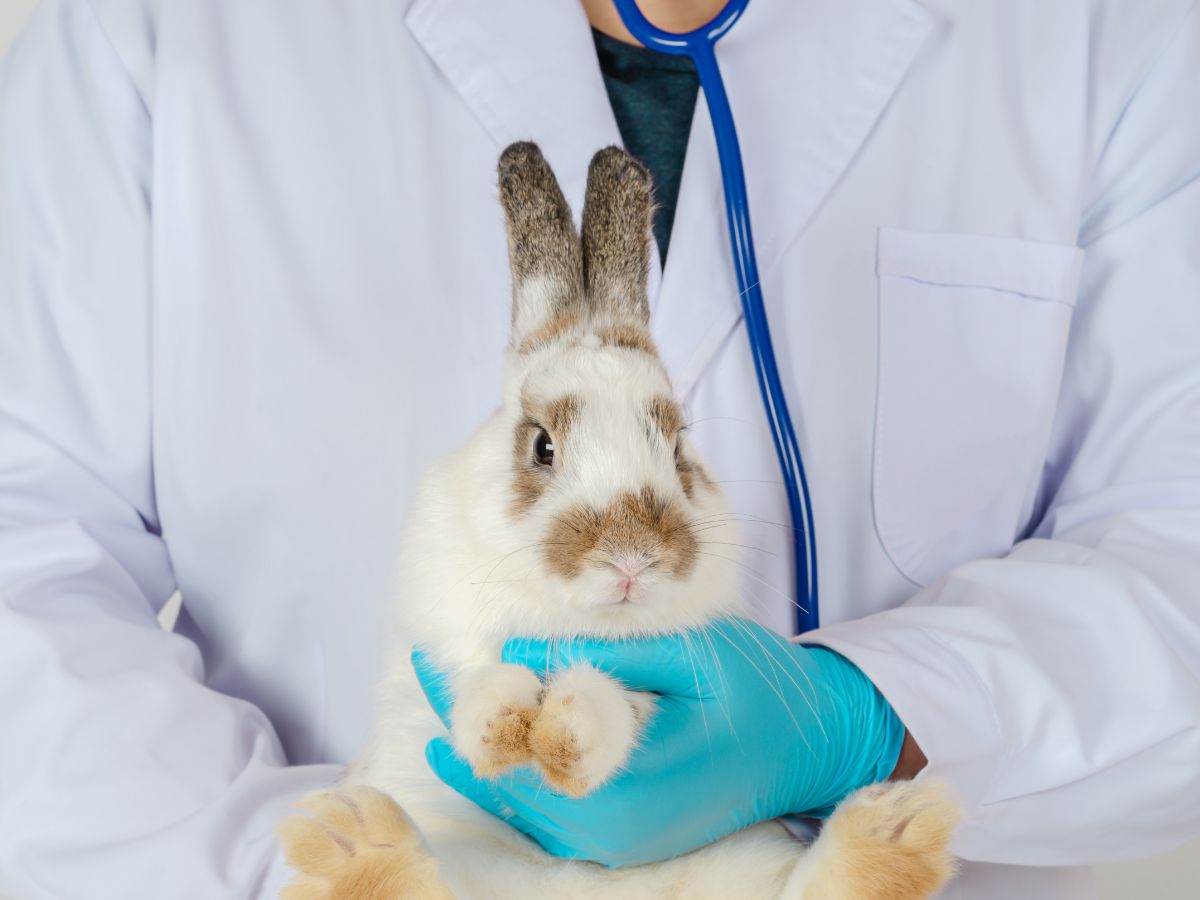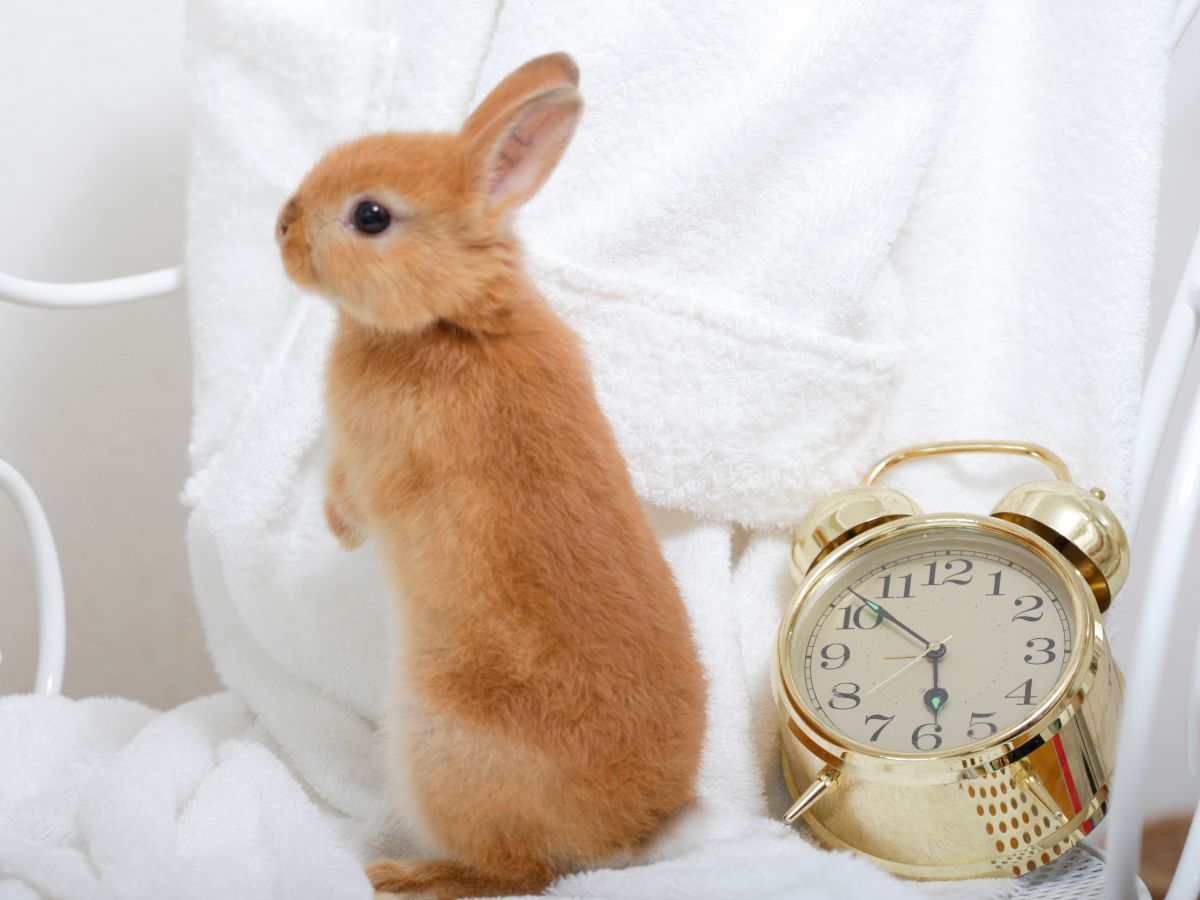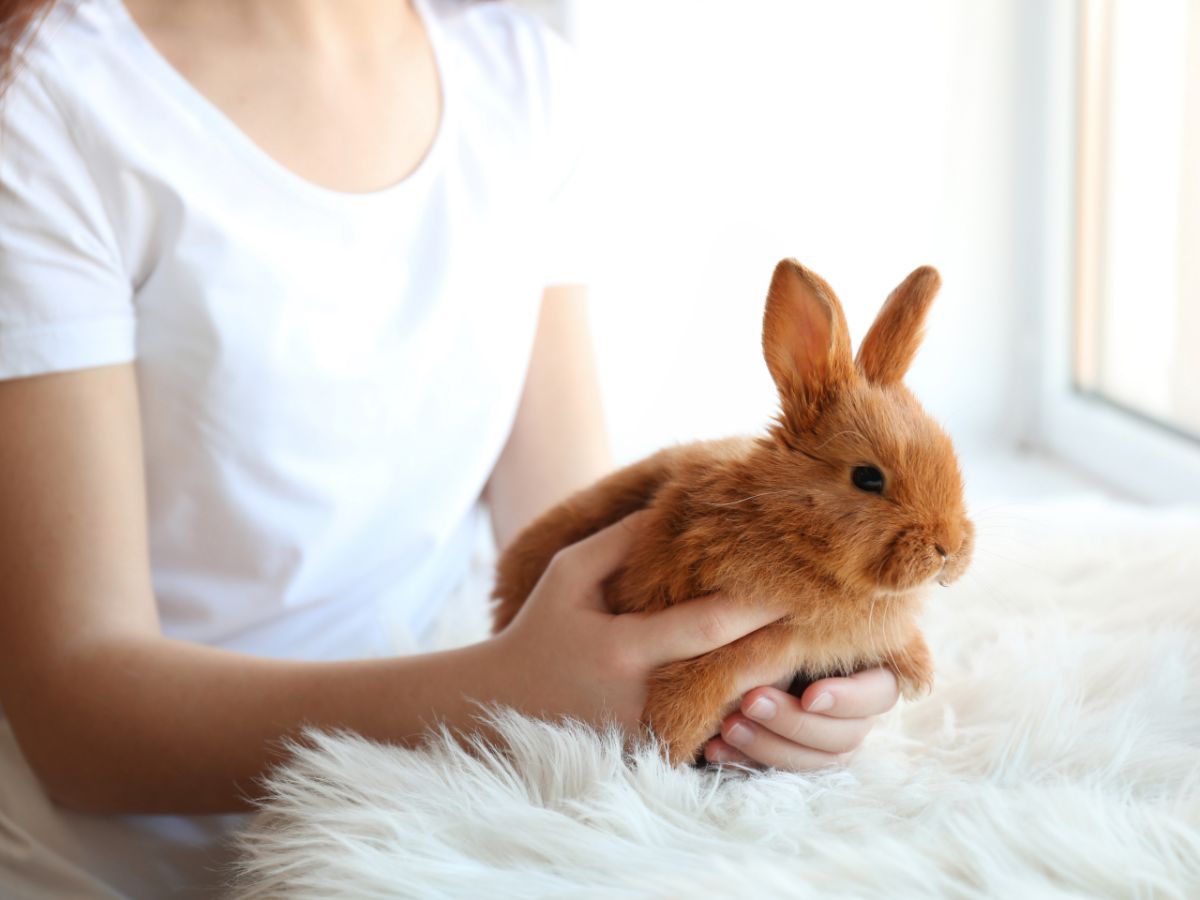Your daughter just came home from a school fair where she decided to spend her pocket money buying a rabbit. After you explained to her the effort it will take to look after a bunny, you wondered if rabbits carry contagious diseases?
Rabbits carry contagious diseases that affect other animals and also humans. The symptoms range from allergic reactions to diarrhea and can lead to serious illness. People or other animals can catch these diseases when coming in contact with the rabbit’s skin, hair, saliva, feces, or urine.
Rabbits might be cute and cuddly, but you will have to think twice before you get a rabbit as a pet. Consider the diseases they can carry, how they infect humans, and in what environment you will introduce the new pet.
Contents
What Contagious Diseases Do Rabbits Carry?
There are many diseases a rabbit can introduce to your family members and pets. The term for these is “Zoonosis,” meaning sickness carried from animal to human. Rabbits can also infect other animals with diseases, usually by the other animals goofing around with their feces or urine.
| Disease | Common Name | Type | Infectious to |
| Pasteurella multocida | Pasteurella | Bacteria | Humans |
| Dermatophytosis | Ringworm | Fungi | Humans |
| Cheyletiella parasitovorax | Skin mites | External parasite | Humans and other animals |
| Cryptosporidiosis | Cryptosporidiosis | Intestinal infection | Humans and other animals |
| Mycobacterium Avium complex | MAC | Bacteria | Humans |
| Allergens | Allergy | Animal proteins | Humans |
| Bordetella bronchiseptica | Snuffles | Bacteria | Humans and other animals |
Diseases That Rabbits Can Infect Humans With
There are a few rabbit diseases you can catch from your pet friend. The rabbit may not appear sick but can infect you. If you know what zoonotic diseases they can carry, you will know what to look out for or decide if you are willing to take the risk.
Pasteurella is a bacterial infection that humans can get from rabbits. Rabbits carry this agent in their mouths and saliva, so the wound can infect and swell if a rabbit bites you, which rarely happens. Pasteurella is no cause for concern; if you wash your hands with soap and water after handling your rabbit, or if it bit you, you will be fine.
Ringworm is quite common, and you can catch it from different pets. Cuddling your rabbit could transmit ringworm to you, causing a round, scaly, dry area and hair loss. Make sure you deworm your pet and yourself then; ringworms won’t be a problem.
Scaly skin will be your clue that you might have been in touch. Other parasites include fleas, lice, and ticks that can also be hostile to the warm fluff of your rabbit’s coat or bedding. You can also catch skin mites through skin-to-skin contact with the rabbit carrying these parasites. Keeping your rabbit clean and their bedding will limit skin infections.
Cryptosporidiosis is an intestinal infection you won’t ever get if you are careful when cleaning manure. It is carried over to humans when you accidentally touch or ingest fecal waste. Symptoms that might be present in humans are fever, an upset tummy, or stomach ache.
MAC is a bacterial infection that your Pygmy rabbit could infect you with if you inhale the agent or come in contact with its feces or urine. This one is quite bad, influencing the lymphatic system and lungs.
Rabbits and any other pets, such as cats, have animal proteins. Humans can be allergic to these, causing itchy eyes, snotty noses, and itchy or rash skin. These allergens are usually in the hair, saliva, or urine.
Snuffles is quite a common disease in rabbits, and because you, as their owner, can pick it up, it is wise to know beforehand what to expect. Snuffles is like the common cold in humans, and rabbits can have the same symptoms. Different bacteria might cause it, but the most common one that causes snuffles is Bordetella.
Diseases That Rabbits Can Infect Other Pets With
There are not many diseases your dog or cat can catch from a rabbit, but there are a few.
Bordetella, causing flu symptoms in humans and the rabbit itself, can cause kennel cough in dogs. This bacterium can be fatal if the rabbit infects a guinea pig because they have weak respiratory systems. The best would be to keep all the pets separate from where they sleep and clean all the bedding.
Cryptosporidiosis will be present in other animals who mess with the infected rabbit’s urine or waste. If you see your dog having diarrhea and it doesn’t get better, assume it is this zoonotic disease and get them to a vet.
The parasites can move from one animal to the other, whether it is a flea, tick, or mite. Parasites moving around will only happen when they are in skin-to-skin contact. The best would be to either keep them separate or make sure you handle each with their flea medicine.

How To Ensure Your Rabbit Is Disease Free
Most of these diseases will not be present or severe, and you don’t have to reconsider getting a rabbit. If you are willing to have some rules and stick to the precautions, you can enjoy the rabbit without the diseases.
- Most bacterial and fungal infections begin in a brooding place for these diseases. Keep the cage and sleep place of a rabbit clean regularly.
- Use a rabbit-safe disinfectant spray to clean all surfaces or areas you had the kids play with the rabbit.
- Make sure your rabbit’s vaccines are up to date
- Rather keep rabbits separate from other pets
- Do your research before buying a rabbit. Those from the wild or a pet shop might have diseases as they were in contact with other species before you got them.
- After playing with your rabbit, clean your hands with soap and water to wash any spores of disease off.
- If your rabbit seems off, sluggish, or “snotty,” take them to the vet as soon as possible.
- Do not handle your rabbit while you make food or apply your make-up.
Conclusion
Rabbits can be a joy, especially to little children. All the diseases might put you off, but if your family is healthy and has no underlying respiratory issues, a rabbit disease will not be destructive. Keep your rabbit clean, handle it with care to prevent bites or scratches, and ensure everyone, including the rabbit, is up to date with vaccines. This way, you can enjoy your fluff ball without worry.




